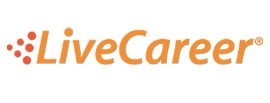6 Resume Tips for Career Changers (That Don’t Involve Sacrificing Salary)
 If you’re like most people, you’ve at least thought about shifting careers or fields. A recent Harris Poll conducted for the University of Phoenix indicated that more than 50 percent of working age adults are interested in making a career change.
If you’re like most people, you’ve at least thought about shifting careers or fields. A recent Harris Poll conducted for the University of Phoenix indicated that more than 50 percent of working age adults are interested in making a career change.
More than 80 percent of the survey’s potential career shifters anticipate barriers to securing a position in a new field at their current compensation level. The following resume tips for career changers can help you land a brand-new role or shift industries without sacrificing compensation.
- Write a Narrative Cover Letter
To successfully change careers you’ll need to tell an old story in a new way. The best tips for career changers focus on convincing your target employer you are exactly the person they need to solve their current problems. That story begins with your cover letter.
Start by analyzing the job ad. Once you’ve figured out what challenge the employer is looking to address with their new hire, you can build a cover letter that makes the case that the unique perspective you’ll bring, thanks to your unconventional background, is exactly what they need.
Provide a cover letter even if one is not required. Today’s employers often use automated applicant tracking systems (ATS) to filter resumes. Most ATS simply tally the number of times key words from the job description are used in your resume and rank applications accordingly, but many will add key words from your cover letter to that total.
- Craft a Powerful Professional Objective
One of the most effective resume tips for career changers is to craft a Professional Objective, rather than a Professional Summary. Don’t simply describe your current skills and responsibilities. Instead, repurpose your existing skills, knowledge and experience, making case that the same talents you’ve been relying on to succeed in your current industry can be successfully applied to a new one.
If you can, use the job title employed by the job description to describe yourself in the first sentence. If you do not feel comfortable doing this then use one that mirrors it as closely as possible. For example, if you are hoping to land a job as a “product manager” but have never held that title, make an honest assessment of what work experience you do have. Have you ever managed a project? If so, you can list yourself as an “experienced project manager” rather than using an accurate title such as “associate” that does not convey your suitability to your new role.
End your objective with a “tagline” sentence that serves as a closing argument, one that is not based on the career track you are hoping to leave behind, but instead focuses on the one you are seeking to enter. Also, consider putting a resume builder to work if you think you’ll need help accomplishing all of this.
- Select the Correct Resume Format
If you are using a chronological resume structure that emphasizes your work history, one of the most effective resume tips for career changers is to consider shifting to Hybrid (or Combination) Format. A Hybrid resume includes Skills and Accomplishments sections, as well as a shorter Work History section that highlights the job functions that most closely parallel those valued in the field you are looking to enter.
Another option is a Functional Resume Format, which gathers together your work experience into related categories so that you can highlight the job that most closely parallels the one are seeking by placing it first in your Work History section.
Both of these resume formats allow you to highlight parallel competencies in sections like “Accomplishments” and “Skills” using bullet lists and keywords directly from the job ad.
- Focus on Transferrable Skills
Don’t be thrown by unfamiliar key words in the job description. If you do some online research, you will likely find plenty of overlap with your current role. You may find that you can easily rephrase your skills and achievements in ways that mirror the language in the job description without stretching the truth.
Next, think about occasions when you stepped outside of your current role and taken on responsibilities that mirror those that are central to the job you desire. For example, if you are looking to shift toward a financial focus in your career, consider whether you’ve ever had to oversee a project budget, calculate compensation for contracted employees or negotiated with vendors.
Have you ever been involved with fundraising or budgeting for a nonprofit endeavor, or held a position as treasurer of a professional association? Leveraging this experience can make a convincing case for your suitability for a new role.
- Focus on Training and Certification
Education and certification is often listed last on resumes, but one of the best resume tips for career changers is to consider re-ordering your resume to highlight any specialized training you’ve undertaken in your efforts to change fields.
Consider online training opportunities or look for off-hours seminars offered by local schools or professional organizations. List any new certifications and courses completed prominently with the date completed to cement the impression that your credentials are up-to-date and your knowledge is current.
- Pare Your Resume Down
Be tough on yourself – edit out any skills and information that distract from the story you are trying to tell. It’s not easy to eliminate a hard-won accomplishments from your resume, but the more disciplined you can be, the more your most relevant experience and skills will stand out to your intended employer.
And remember to highlight your number one strength as a career shifter – your willingness to take risks and learn new skills.
About the Author:
Since 2005, LiveCareer has been developing tools that have helped over 10 million users build stronger resumes, write persuasive cover letters, and develop better interviewing skills. Land the job you want faster using our resume examples and resume templates, writing guides, and free, easy-to-use resume builder.

